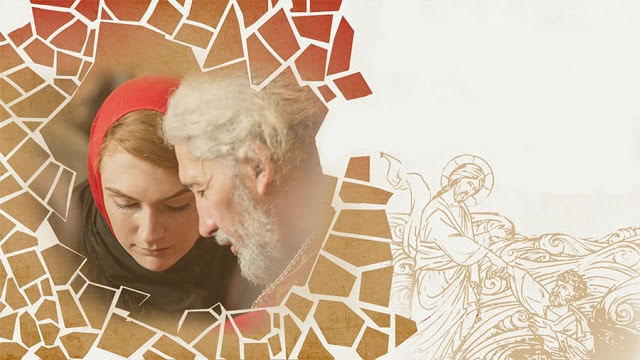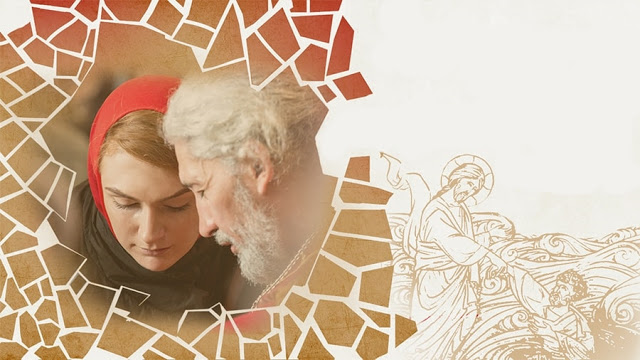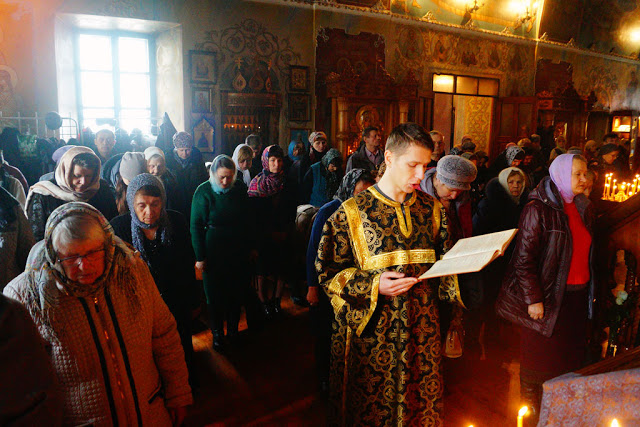
The Gospel invites us to examine ourselves, scrutinize our own sins, and notice the beams sticking out of our own eyes. Elder Ambrose of Optina said, “Know yourself, and that’s enough”. Of course, you can see a whole lot of bad things and turn away from them in disgust but that’s the reality: we live in a world that isn’t sterile—in a world that lost its original beauty. The whole world lieth in wickedness (cf. 1 John 5:19), and in the world ye shall have tribulation (cf. John 16:33). That is why our struggle against judgement, against the sinful attitude to others, when we look at them superficially and venture to tag them without love in our hearts, is the struggle for our souls, for our future because if our souls remain judgemental, embittered, and feel disgust of our neighbours, they will not be able to enter the Heavenly Kingdom. Our souls need to be purified. That is the reason why the Church exists: it is the place where one’s soul melts down in the Sacraments of Repentance and Communion and where one learns to understand and accept his neighbours, feel sympathetic and compassionate, and refrain from judging them (which is so common among people who live as they please). God is our only Judge, and we all shall be judged by him sooner or later.
I think both parties are to blame. Who is more at fault… is probably the person who bears the grudge longer, or the one who provokes the other. In fact, we are all guilty, and whoever is more aware of that fact, that person is closer to the truth. Of course, we must call a spade a spade: we mustn’t say that everything is all right if someone commits a sin. How do we separate the sin from the sinner? How do we hate the sin and sympathise with the person? The Holy Spirit has answers to these dilemmas. The closer to God you are, the more guilty you feel. That’s the unmistakable criterion of who’s to blame.
There are cases when someone’s actions literally border on crimes, and you’ve got to stop them. You are supposed to do everything you can to prevent the other person’s sin. However, as long as you feel your own guilt and don’t insulate yourself from that person, you will manage to retain the godly, the genuinely Christian attitude. We often say the right words, stop other people, look down on them with contempt, and put some unfavourable labels on them — that’s what happens when we don’t inspect our own hearts. For instance, there is a person who spent his entire life in jail. He has never seen his mum or dad: he stayed in an orphanage, and then a camp for juvenile delinquents, and on and on… How can we judge that person and claim that we’re any better? What if you didn’t have what you happen to have? What if you didn’t have your family, your parents? What if you didn’t feel loved, ever? Could you guarantee that you’d still be better? No way. We can’t see the full picture of what’s going on inside and outside in that person’s life. We don’t see his hesitations and struggles. Therefore, we are defendants, just like all other people. Jesus Christ is our only Judge.
If you can stop the sin, if you can help that person to see that his actions are bad, you shouldn’t miss that opportunity. If we miss it, we will be guilty of
indifference and passivity in the face of the sin. Narrow is the way, which leadeth unto the Kingdom of Heaven (cf. Matthew 7:14). If you diverge from that way just a little, you’ll eventually find yourself in the wrong place. That’s how our life goes on.
Friends sometimes come together to gossip about someone else but they feel that they’re right because they gossip together. That’s what usually happens when good but spiritually weak people meet. They start talking and discussing various topics, and they often end up judging others. If there was someone who would have the guts to say, “Our discussion has taken the wrong direction. Who are we to pass judgement?” that discussion would break up. Unfortunately, people are often too shy or too scared to do anything that might threaten their relationships, and they keep quiet and nod, “Yes-yes-yes, that’s right, that person is bad.” That’s a collective sin, which affects us all.
What’s especially bad is that in the meantime we tend to repeat the sins that we used to condemn so fiercely. If you pay attention, you’ll notice it and learn from it. If you don’t care, you’ll ignore it. That’s how our life goes on: we condemn and rebuke others, then fall into the same trap and justify ourselves by finding faults with others. The merry-go-round of sin keeps turning…





